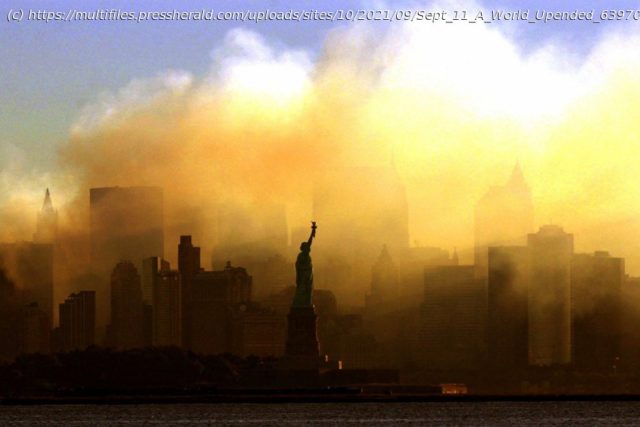The terrorist attacks on the United States nearly 20 years ago brought profound change in America and the world.
In the ghastly rubble of Ground Zero’s fallen towers 20 years ago, Hour Zero arrived, a chance to start anew. World affairs reordered abruptly on that morning of blue skies, black ash, fire and death. In Iran, chants of “death to America” quickly gave way to candlelight vigils to mourn the American dead. Vladimir Putin weighed in with substantive help as the U.S. prepared to go to war in Russia’s region of influence. Libya’s Moammar Gadhafi, a murderous dictator with a poetic streak, spoke of the “human duty” to be with Americans after “these horrifying and awesome events, which are bound to awaken human conscience.” From the first terrible moments, America’s longstanding allies were joined by longtime enemies in that singularly galvanizing instant. No nation with global standing was cheering the stateless terrorists. How rare is that? Too rare to last, it turned out. Civilizations have their allegories for rebirth in times of devastation. A global favorite is that of the phoenix, a magical and magnificent bird, rising from ashes. In the hellscape of Germany at the end of World War II, the concept of Hour Zero, or Stunde Null, offered the opportunity to start anew. For the U.S., the zero hour of Sept.11,2001, meant a chance to reshape its place in the post-Cold War world from a high perch of influence and goodwill. This was only a decade after the Soviet Union’s collapse left America with both the moral authority and the military and financial muscle to be unquestionably the lone superpower. Those advantages were soon squandered. Instead of a new order,9/11 fueled 20 years of war abroad. In the U.S., it gave rise to the angry, aggrieved, self-proclaimed patriot, and heightened surveillance and suspicion in the name of common defense. It opened an era of deference to the armed forces as lawmakers pulled back on oversight as presidents gave primacy to the military over law enforcement in counterterrorism. It sparked anti-immigrant sentiment, primarily directed at Muslim countries, that lingers today. What most nations agreed was a war of necessity in Afghanistan was followed two years later by a war of choice as the U.S. invaded Iraq on false claims that Saddam Hussein was hiding weapons of mass destruction.






